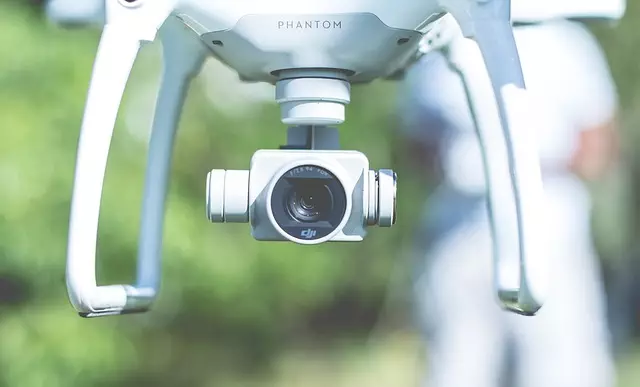Rodent infestations from rats or mice pose significant challenges for homeowners and businesses. Understanding each species' behaviors, entry points, and hiding places is crucial for effective control. Proactive measures like sealing gaps, maintaining cleanliness, and regular inspections significantly reduce infestation risks. Non-toxic methods, such as repellents and decoys, ensure humane coexistence while chemical options demand caution due to potential health risks. DIY traps and professional pest control services offer viable solutions. Securing spaces through multi-faceted prevention and proper sanitation practices creates an inhospitable environment for rodents. Health concerns necessitate strict cleaning and disinfection protocols, especially in high-risk areas. Ethical considerations, including environmental and safety guidelines, are vital when implementing rodent control strategies.
Rodents, such as rats and mice, can quickly turn into a home invasion nightmare. This comprehensive guide explores effective rodent control strategies, from understanding infestation types and behaviors to implementing humane non-toxic methods. We delve into chemical options with precautions, DIY traps and repellents, professional services, preventative measures, cleaning tips, and legal/environmental considerations. Equip yourself with these insights for successful rodent control.
Understanding Rodent Infestations: Types and Behaviors

Rodent infestations, whether it’s rats or mice, can be a significant problem for homeowners and businesses alike. Understanding the types and behaviors of these pesky intruders is the first step in effective rodent control. Both rats and mice are members of the rodents family, but they have distinct characteristics that impact their habits and the damage they may cause.
Rats, known for their larger size and strength, tend to live in close proximity to humans, often finding shelter in walls, attics, or crawl spaces. They are excellent climbers and swimmers, which allows them to access various food sources and navigate through diverse environments. Mice, on the other hand, are smaller and more agile. They prefer to nest in warm, hidden areas such as floor cavities, behind appliances, or beneath flooring. Unlike rats, mice are not strong swimmers but have exceptional jumping and climbing abilities. Recognizing these behavioral patterns is crucial for implementing targeted rodent control measures.
Common Entry Points: Identifying Weak Spots in Your Home

Rodents like rats and mice are adept at finding their way into homes through even the smallest of gaps. Identifying common entry points is a crucial step in implementing effective rodent control. These weak spots can include cracks in walls, spaces around pipes and cables, open windows with poor screening, and doors that don’t fit properly. Regular inspections should be conducted to pinpoint these areas and seal them off using materials like steel wool, caulk, or foam.
By blocking access points, you significantly reduce the chances of a rodent infestation. It’s important to remember that rodents are persistent, so maintaining a high level of vigilance is key. Keep your home clean, store food in sealed containers, and ensure all entry points are consistently checked and maintained to prevent any unwelcome visitors from settling in.
Non-Toxic Methods for Humane Rodent Control

Non-toxic methods offer a humane and environmentally friendly approach to rodent control, appealing to those who prioritize safety and sustainability. One effective technique is using natural repellents such as peppermint oil or cayenne pepper, which can deter rodents from entering homes or gardens without causing them harm. These repellents can be easily applied around entry points and are safe for pets and humans.
Another popular non-toxic method involves the strategic placement of decoys and visual deterrents. Cats, owls, or snake replicas can be used to scare off rodents, as these predators serve as natural enemies. Additionally, reflective objects like aluminum pie plates or CDs can create a distracting and unsettling environment for rodents, encouraging them to find alternative habitats.
Chemical Options: Effective but with Precautions

Chemical options for rodent control can be highly effective, but their use requires extreme caution. Many commercial chemicals target specific neurotransmitters in a rat or mouse’s brain, causing rapid unconsciousness and death. However, these substances can also pose significant risks to human health and pets if not handled and applied properly. It’s crucial to follow label instructions precisely and store these products securely out of reach.
Before resorting to chemical control, consider the potential environmental impact and always explore non-chemical alternatives first. If chemicals are necessary, wear protective gear when applying them, ensure proper ventilation, and keep treated areas off-limits until the products have had adequate time to take effect and break down.
DIY Traps and Repellents: A Cost-Effective Approach

DIY traps and repellent methods offer an accessible, cost-effective solution for rodent control. These methods allow homeowners to take matters into their own hands, eliminating or deterring rats and mice from invading their spaces. Common household items can be repurposed as traps, providing a budget-friendly alternative to professional services. For instance, setting simple snap traps with bait like peanut butter or chocolate can effectively capture rodents humanely. Alternatively, homemade repellents using ingredients like peppermint oil or cayenne pepper can deter these pests naturally.
By implementing DIY solutions, individuals gain control over their environment and avoid the costs associated with professional pest control services. Moreover, these methods ensure the use of safe, non-toxic substances, making them ideal for homes with children or pets. With a bit of creativity and resourcefulness, homeowners can create an effective rodent control strategy tailored to their specific needs without breaking the bank.
Professional Pest Control Services: When to Hire Experts

When dealing with persistent rodent issues, such as a rat or mice infestation, considering professional pest control services can be a wise decision. These experts in rodent control are equipped with specialized knowledge and tools to effectively manage and eradicate rodents from homes or commercial properties. Their services offer several advantages, especially when DIY methods prove ineffective or the infestation is extensive.
Hiring professionals is particularly recommended for complex cases, as they employ safe and eco-friendly solutions tailored to specific rodent species. With their advanced techniques, these experts can navigate hard-to-reach areas, ensuring every corner of your property is examined. Additionally, they provide ongoing support and prevention strategies to stop rodents from returning, offering a long-term solution for efficient rodent control.
Preventative Measures: Securing Your Space Long-Term

Securing your space long-term is a key aspect of effective rodent control. Preventative measures should be taken to ensure that your home or business remains free from rats and mice. This involves a multi-faceted approach starting with identifying and sealing potential entry points. Check for any gaps around pipes, wires, doors, and windows, and use steel wool or caulk to fill these openings. Additionally, maintaining a clean environment by regularly cleaning up food debris and storing items securely can significantly reduce the appeal of your space to rodents.
Regular inspections are also crucial in preventing rodent infestations. Conducting routine checks allows you to identify any signs of activity early on, such as droppings or chewed wiring. Implementing a good sanitation system, including proper waste management and regular vacuuming, further discourages rodents from seeking shelter. By combining these preventative measures, you can create an inhospitable environment for rodents, ensuring long-term rodent control success.
Addressing Health Concerns: Cleaning and Disinfection Tips

When addressing rodent control, health concerns are paramount. Rodents like rats and mice can carry and transmit harmful diseases through their droppings, urine, and parasites. To mitigate these risks, proper cleaning and disinfection practices are essential. Regularly sanitizing high-risk areas such as kitchens, dining rooms, and storage spaces with hot, soapy water and a disinfectant solution can significantly reduce the presence of pathogens.
Focus on thoroughness, ensuring every surface is wiped down, including floors, countertops, and appliances. Pay close attention to hard-to-reach areas where food debris might accumulate. Additionally, vacuum thoroughly to remove dried droppings and other debris. Remember, consistent cleanliness is key in maintaining a rodent-free environment and protecting your family’s health.
Legal and Environmental Considerations for Rodent Control

When implementing rodent control measures, it’s crucial to consider both legal and environmental factors. Many countries and regions have stringent regulations in place to protect non-target species and maintain ecological balance. Using illegal or toxic methods can result in hefty fines and environmental damage. Rodent control should adhere to these guidelines, prioritizing humane and eco-friendly solutions.
One key consideration is the choice of rodenticides. While effective, these chemicals must be handled and disposed of responsibly to prevent water contamination and harm to wildlife. Additionally, property owners and managers have a legal obligation to ensure the safety of tenants and nearby communities, avoiding methods that could pose risks to public health or cause distress to other animals.
